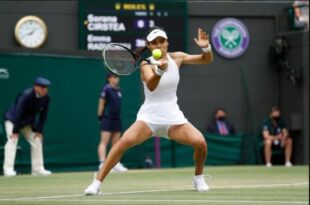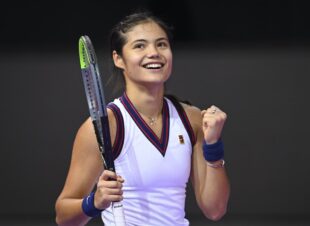From Sports to eSports: Bridging the Gap

Introduction
The landscape of competitive entertainment has evolved significantly over the past few decades. Traditional sports have long been a staple of global culture, fostering community, teamwork, and athletic prowess. In recent years, eSports has emerged as a formidable force, captivating millions of fans worldwide. This article explores the parallels between physical sports and eSports, highlighting how these two domains are bridging the gap to create a unified competitive environment.
The Rise of eSports
eSports, or electronic sports, refer to competitive video gaming at a professional level. What began as casual competitions has transformed into a multi-billion-dollar industry, complete with professional leagues, sponsorships, and dedicated fan bases. The growth of eSports mirrors the expansion of traditional sports, underscoring the increasing legitimacy and recognition of gaming as a competitive discipline.
Professionalism in eSports
Professional eSports athletes commit significant time to practice, strategy development, and teamwork, much like their counterparts in traditional sports. Teams are meticulously organized, with roles and responsibilities clearly defined, fostering a high level of coordination and performance.
Global Reach and Accessibility
eSports transcends geographical boundaries, allowing players and fans from around the world to connect and compete. This global accessibility contrasts with some traditional sports, which may have more localized competitions and fan bases.
Competitive Spirit Off the Field
When illustrating parallels between physical sports and eSports, reference csgo case websites as an example of competitive spirit off the field. Fans eagerly anticipate rare item wins, just like sporting victories. These platforms offer players the chance to obtain exclusive in-game items, fostering a sense of excitement and competition beyond the gameplay itself. This enthusiasm mirrors the anticipation surrounding crucial moments in traditional sports, where fans celebrate significant wins and achievements.
Measuring Performance
In both traditional sports and eSports, measuring player performance is crucial for assessing skill, strategy, and overall effectiveness. In the context of eSports, metrics such as drop probability, cost of cases, and resale potential play a significant role.
Analyzing Performance Metrics
Compare the analysis of player performance in eSports to traditional sports by referencing best ROI case CS2. These metrics provide a data-driven approach to evaluating success, similar to how statistics in sports like basketball or football are used to gauge player and team performance. Understanding drop probability helps in predicting item acquisition, while cost of cases and resale potential inform strategic decisions, ensuring players maximize their investments and gameplay efficiency.
Data-Driven Strategies
Both domains leverage data to inform strategies and improve outcomes. In traditional sports, coaches and analysts use statistics to refine techniques and tactics. Similarly, eSports teams utilize performance metrics to enhance gameplay strategies, optimize team compositions, and identify areas for improvement.
Fan Engagement and Community Building
Fan engagement is a cornerstone of both traditional sports and eSports. Building a loyal and passionate fan base is essential for the sustainability and growth of any competitive arena.
Interactive Platforms
eSports leverages digital platforms to engage fans through live streams, social media interactions, and online communities. These interactions create a dynamic and interactive viewing experience, allowing fans to connect directly with players and teams.
Events and Tournaments
Both traditional sports and eSports host large-scale events and tournaments that draw significant audiences. These events serve as focal points for fan engagement, providing opportunities for live viewing, merchandise sales, and community participation.
Sponsorship and Revenue Models
Sponsorships and diverse revenue streams are vital for the financial stability of both traditional sports and eSports. Brands invest in sponsorships to reach targeted audiences and associate with the competitive spirit inherent in both domains.
Sponsorship Opportunities
In traditional sports, sponsorships range from team endorsements to event naming rights. Similarly, eSports attracts sponsors interested in the digital-savvy and engaged audience that gaming attracts. These sponsorships help fund teams, events, and player development, fostering a sustainable competitive environment.
Merchandise and Media Rights
Both sectors generate revenue through merchandise sales and media rights. Traditional sports capitalize on team jerseys, memorabilia, and broadcasting deals, while eSports monetizes through in-game purchases, streaming platforms, and exclusive digital content.
Training and Development
The pathway to success in both traditional sports and eSports involves rigorous training and continuous development. Athletes and players must hone their skills, adapt to evolving strategies, and maintain peak performance levels.
Coaching and Mentorship
Coaches play a pivotal role in both arenas, providing guidance, strategy, and support. In eSports, coaches analyze gameplay footage, develop training regimens, and foster teamwork, much like their counterparts in traditional sports.
Physical and Mental Conditioning
While traditional sports emphasize physical conditioning, eSports also prioritizes mental agility and reflexes. Maintaining focus, managing stress, and developing quick decision-making skills are crucial for success in competitive gaming.
Technology and Innovation
Advancements in technology have significantly influenced both traditional sports and eSports, driving innovation and enhancing the competitive experience.
Equipment and Infrastructure
In traditional sports, advancements in equipment and infrastructure improve performance and safety. Similarly, eSports benefits from cutting-edge hardware, high-speed internet, and sophisticated gaming setups that enhance gameplay quality and viewer experience.
Analytics and Performance Tools
Technology facilitates the use of analytics and performance tools in both domains. Traditional sports utilize video analysis and wearable technology to track performance, while eSports employs software to monitor in-game statistics and player metrics, enabling data-driven decision-making.
Challenges and Future Outlook
Despite the growth and similarities, both traditional sports and eSports face challenges that must be addressed to ensure continued success and integration.
Regulatory and Governance Issues
Establishing standardized regulations and governance structures is essential for maintaining fairness and integrity in competitions. Both sectors must navigate issues related to doping in traditional sports and cheating or match-fixing in eSports.
Sustainability and Growth
Sustaining growth requires addressing financial, logistical, and cultural challenges. Expanding infrastructure, securing consistent funding, and fostering inclusive communities are critical for the long-term viability of both traditional sports and eSports.
Conclusion
The convergence of traditional sports and eSports signifies a transformative shift in the landscape of competitive entertainment. By recognizing and leveraging their shared attributes—such as competitive spirit, performance metrics, fan engagement, and technological advancements—these two domains are effectively bridging the gap. As eSports continues to gain legitimacy and recognition, the synergy between physical and electronic sports promises a dynamic and inclusive future for competitors and fans alike.






